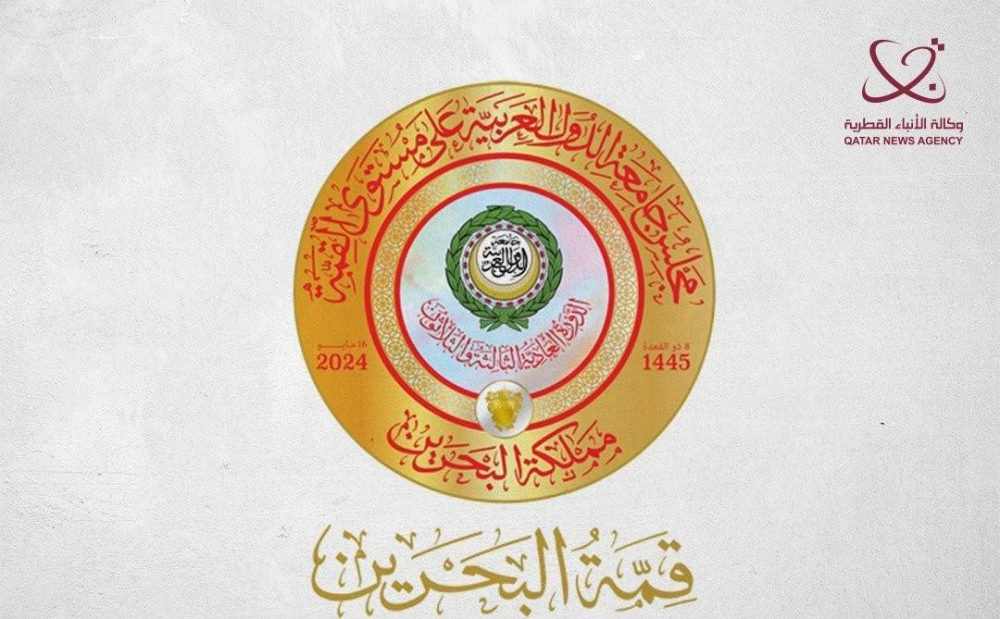The 33rd regular session of the Arab League Council at the summit level started in Manama on Thursday, at a critical time when the Arab region is witnessing many challenges and stakes at several levels, including political, geopolitical, and security, led by the ongoing Israeli aggression against the Gaza Strip for more than seven months.
The summit is also being held in exceptional economic circumstances imposed by the state of turmoil and security instability in the Middle East region, in addition to the accelerating effects of climate change and its repercussions on all other economic and development issues.
In his opening speech at the Summit, HH Crown Prince and Prime Minister of Saudi Arabia Prince Mohammed bin Salman bin Abdulaziz Al-Saud, president of the 32nd Arab Summit, stressed the necessity of continuing joint action to confront the brutal aggression against brothers in Palestine, and for the international community to fulfill its responsibility toward immediately stopping the occupation aggression on Gaza, the delivery of humanitarian aid to civilians, and the necessity of working to find a just and comprehensive solution to the Palestinian cause based on international legitimacy resolutions and the Arab Peace Initiative, in a way that guarantees the right of the Palestinian people to establish their independent state on the 1967 borders, with East Jerusalem as its capital.
His Highness highlighted the keenness of the Kingdom of Saudi Arabia, during its presidency of the 32nd session of the League Council, to formulate common positions towards regional and international issues, most notably the Palestinian cause, as it hosted the extraordinary joint Arab and Islamic summit to discuss the Israeli aggression against the Gaza Strip, and issued a collective decision condemning this aggression, refusing to justify it under any pretext. He noted the Kingdom's call to resolve all conflicts by peaceful means, and from this standpoint, it will continue to provide humanitarian aid and economic support to the brothers in Yemen and sponsor dialogue between the Yemeni parties to reach a political solution to end the crisis.
HH Crown Prince of the Kingdom of Saudi Arabia also stressed that the political and security challenges the Arab region is witnessing would not prevent the continuation of joint efforts to confront these challenges and move forward to continue the process of development and sustainable development in a way that brings prosperity and well-being to the Arab countries and achieves their hopes and aspirations.
After receiving the presidency of the summit from Saudi Crown Prince Mohammed bin Salman, Bahrain's King Hamad bin Isa Al Khalifa delivered a speech calling for an international conference for peace in the Middle East. He emphasized the importance of achieving a final and just peace in the region, "as there is no alternative if we seek victory for our human will in the battle for peace."
He explained that amid the continuing risks surrounding Arab national security, the responsibility to protect the common Arab march increases, and to open a new page of stability and development that brings closer legitimate aspirations as a cultural force capable of understanding the requirements of the era and keeping pace with its progress. He stressed that in light of the denial of Palestinian people's legitimate rights to security, freedom, and self-determination, there is a growing need to crystallize a common and urgent Arab and international position that adopts the path of dialogue and collective solidarity to stop the bloodshed.
He said that the establishment of an independent Palestinian state will, no doubt, bring good to the entire Arab neighborhood to overcome its crises and to join hands for escalating developmental construction, in support of all Palestinian brothers. He also considered that the way to achieve this is through the approach of reconciliation and serious political dialogue.
The Bahraini monarch pointed out that the convening of this summit coincides with the international celebration of the International Day of Living Together in Peace, highlighting that embodying this civilizational value requires, first and foremost, consensus on adopting peace as an indispensable strategic choice.
In his speech, King Hamad bin Isa Al Khalifa expressed hope that the consultations and decisions would contribute to a re-foundation of a flourishing present and a bright future deserving of future generations, and that this summit would mark a historical turning point in the Arab construction journey.

